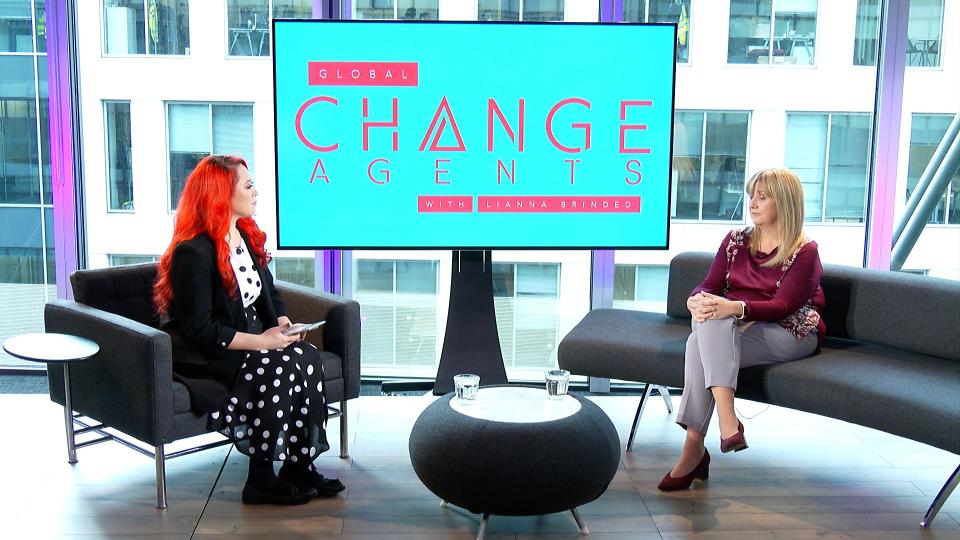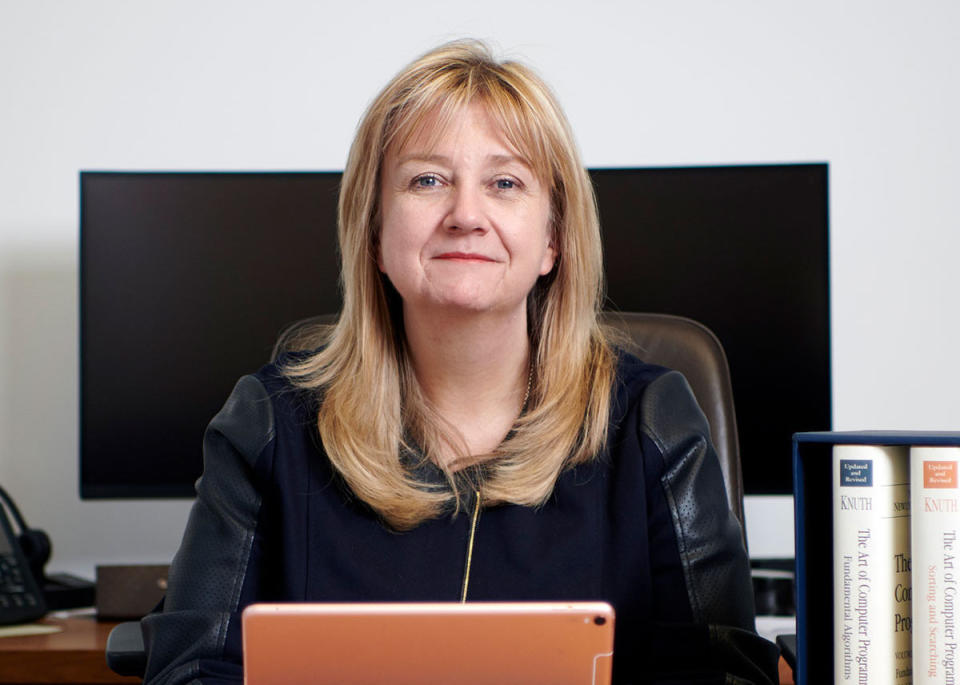Goldman Sachs’ EMEA tech chief on her evolving role and encouraging more women to code
Jo Hannaford is one of the most senior technology leaders in British banking.
With a career at Goldman Sachs spanning more than 20 years, Hannaford was named a managing director in 2008, a partner in 2014, and she currently serves as Goldman’s head of EMEA technology and global head of quality assurance engineering.
Before joining Goldman, Hannaford worked at NatWest Markets and UBS Investment Bank.
Speaking on Yahoo Finance UK’s new premium video show, Global Change Agents with head of Yahoo Finance UK’s Lianna Brinded, Hannaford discussed her storied career, how her role has evolved and how she’s encouraging more women in the company to consider programming. She also discussed the “phenomenal” take-up of Goldman Sachs’ new consumer savings account Marcus, and offered advice for people looking to follow a similar career path.
Hannaford on what attracted her to Goldman Sachs
When Hannaford first embarked on her career, computers were so expensive — “what you run on your smartphone would cost millions” — there were only really two options for a budding computer programmer: the city, or the Ministry of Defence.

“I have no interest in programming missiles,” but banking offered access to interesting programming work, Hannaford said.
“This year we celebrate 150 years at Goldman Sachs,” Hannaford said. “Throughout that 150 years there’s been constant innovation so you never feel that you’re done, there’s always something more interesting to do.”
Hannaford said she was drawn to Goldman Sachs 22 years ago due to the company operating a “meritocracy.”
“One of the smartest moves I ever made in my life was to actually seek out a company where I could be valued — not because I’m a woman, but because I just wanted to have a career there based on meritocracy,” Hannaford said. “I think that’s all women want, ultimately, is to be treated the same way … you don’t stay at a company for 22 years if you don’t feel as if your work is valued or you’re valued.”

She went on to describe Goldman’s “informal” and “collective” engineering environment. Hannaford still starts most days with a code review and discusses the piece of code with the developer who authored it.
“I do that because it sends a message that we really care about that — but also because it makes me happy,” Hannaford said, adding that she can even now recognise which of her colleagues wrote individual segments of code.
“It’s a bit like when you pick up a [novel] and you recognise who that novelist is: I now can pretty much on certain pieces of code, know who wrote them: I actually know the characteristics,” Hannaford said.
Marcus, Goldman’s online consumer savings account
Hannaford said Marcus, Goldman’s online consumer savings account that launched in the UK in September 2018, is one example of the bank’s collective approach to the engineering shop floor.
“When we built Marcus, the very first thing we did was to create a new kind of department that took the experts from … other areas and put them together and said to them: ‘We want you to solve this problem’,” Hannaford said.
The consumer response to Marcus has been “phenomenal,” Hannaford said. Marcus had reached more than 200,000 UK customers and generated more than $10bn (£7.6bn) in UK deposits by March this year, according to a Goldman Sachs spokesman. Around 6,000 people signed up for accounts within the first hour of Marcus’ launch, Hannaford said.
“It just proves to show that something like Goldman Sachs, who is traditionally an investment bank, pivoting towards a new type of consumer interface, that there is really appetite to do that.”
Goldman’s free coding lessons for women
Meanwhile, the bank is encouraging more women within its ranks to take up programming. Goldman offers its female analysts free lessons in the Python and Ruby scripting languages as part of its partnership with the Code First Girls charity. Those classes are “oversubscribed” and have helped give those women confidence to take up new skills, Hannaford said, adding that many women wrongly feel programming is an “unobtainable” career.
“Fundamentally, programming is about an instruction set that you learn that you provide to a computer to do certain actions,” Hannaford said. “I think that it’s easier than Spanish, or French, or German — you don’t have to worry about emotion, you’re doing instructions.”
“Yet for many women, Spanish is a lot easier than Python and I just don’t understand that.”

Hannaford also shared her advice for others looking to progress in their careers: “Mimic people around you that you respect. Study them and think about how you can actually change your behaviour.”
Hannaford said she is “constantly adapting and changing” her behaviours, depending on the environment she is in.
“I think it takes four weeks after you execute a certain behaviour in a particular way for that behaviour to become routine to you,” Hannaford said. “I think that’s my message.”
Global Change Agents with Lianna Brinded is a new premium video series from Yahoo Finance UK. The show explores the stories of some of the most inspirational women across business, tech, and academia. Catch up on all the latest episodes here.

 Yahoo Finance
Yahoo Finance 